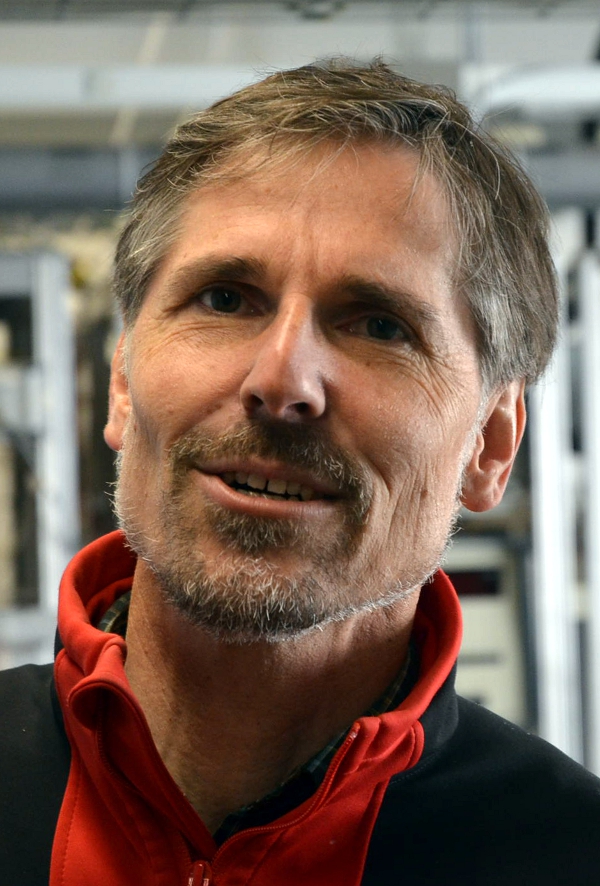Results: Monitoring of the Montreal Protocol ? Basis for Predicting Ozone Recovery
Reactive inorganic chlorine plays a crucial role in the stratospheric ozone depletion. To stabilize and enable a recovering of the stratospheric ozone layer, the Montreal protocol and its amendments have been implemented in 1987 to stop the emission of chlorinated source gases (e.g., CFCs). These gases are photochemically converted in the stratosphere mainly into HCl, ClONO2 (Cly, see Figure), and the inert Fy species, i.e., HF and COF2. Therefore, long-term measurements of these species can be used to monitor the effectiveness of the Montreal protocol. This is performed with the Zugspitze FTIR system, currently funded via the EC-Project GEOMON ![]() for this task.
for this task.
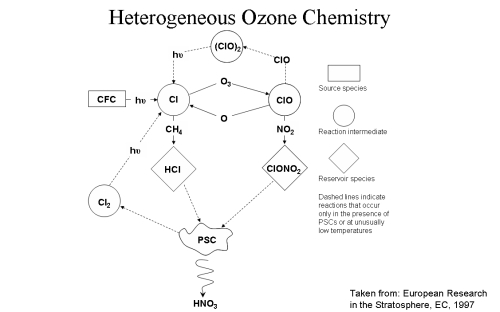
A previous study on a possible response of Cly in response to the Montreal protocol has shown a stabilization at high levels after 1998 [Rinsland et al., 2003 ![]() ]. We show here our results from an updated study, including ozone and Fy. The goal is to characterize the further trend evolution, i.e., whether a turnover has occurred meanwhile, or not. The results from the Zugspitze FTIR long-term measurement series are presented below.
]. We show here our results from an updated study, including ozone and Fy. The goal is to characterize the further trend evolution, i.e., whether a turnover has occurred meanwhile, or not. The results from the Zugspitze FTIR long-term measurement series are presented below.
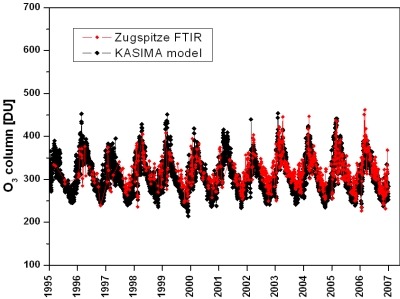
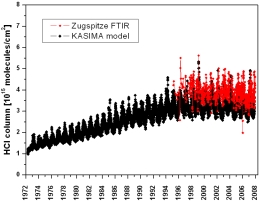
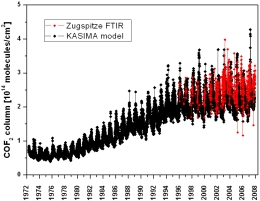
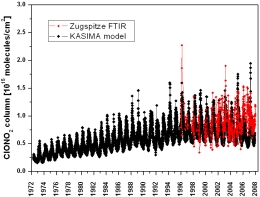
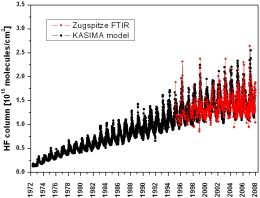
A detailed trend study including a discussion of the comparison with the Karlsruhe Simulation Model of the Middle Atmosphere (KASIMA) results is under way [Ruhnke, Sussmann, Borsdorff et al., to be published].
Reference
